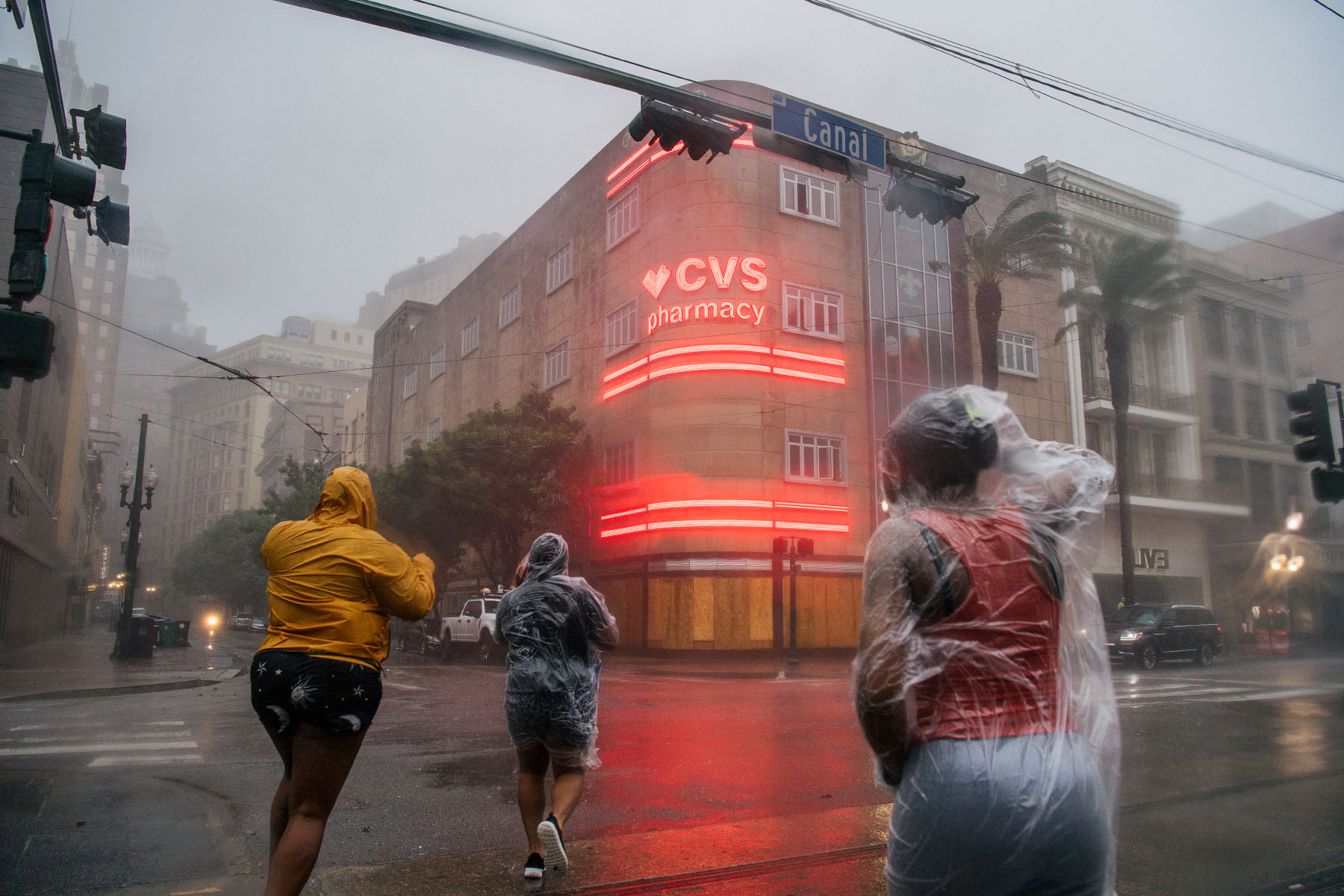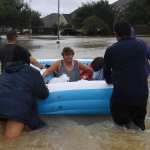Half of people with HIV in the United States are living in places that are vulnerable to extreme weather and climate disasters, according to a new analysis from the left-leaning Center for American Progress (CAP).
The report from CAP released Wednesday finds that the areas of the country where HIV is being diagnosed at disproportionately high rates are also places most at risk of disasters. The analysis used data from the Ending the HIV Epidemic in the U.S. (EHE) program, a federal program that aims to reduce the rate of new HIV infections, and the Federal Emergency Management Agency (FEMA) national risk index. FEMA’s tool takes into account the frequency of disasters, but also the vulnerability of the population, accounting for certain at-risk demographics like low-income and socially disadvantaged people.
Fifty locations, including 48 counties, Washington, D.C., and San Juan, Puerto Rico, have been designated by EHE as high-priority areas to combat HIV because they are where more than 50 percent of new HIV cases occur. On average, those places had a national risk index score of 96.8 out of a 100.
“It is not surprising that those most at-risk live in areas particularly vulnerable to extreme weather and climate events. That is true for many other climate-sensitive health outcomes,” said Kristie Ebi, professor of global health at the University of Washington, who reviewed the analysis. “The poor and marginalized are generally at higher risk and often live in less desirable locations that are less desirable because of vulnerability to extreme weather and climate events.”
Haley Norris, policy analyst with CAP and author of the report, said what stood out to them was the variability in threats faced by the different parts of the country. On the West Coast, wildfires cause issues for people with HIV because many develop lung conditions that are exacerbated by wildfire smoke. In the South and Northeast, flooding and hurricanes pose unique health issues for people with HIV by making it more difficult to access medical care. All three of these types of climate disasters are becoming more destructive due to climate change.
“We’re seeing extreme weather and climate events that are quite far outside of historic experience,” Ebi said, pointing to flooding in Asheville, North Carolina, as one recent example.
For those with HIV, those extreme events are making it harder to stay on track with their medications, which stop the disease from progressing to AIDS and prevent transmission to others.
Vatsana Chanthala is director of the New Orleans Health Department’s Ryan White HIV/AIDS Program, a federal initiative that provides funding for clinics and treatments that support low-income people. New Orleans is located in one of the priority jurisdictions to combat new HIV infections.
After Hurricane Ida in 2021, her team surveyed patients in the program to gain a better understanding of how the disaster may have disrupted their care or access to medications. HIV treatment involves taking antiretrovirals daily or bimonthly injections to suppress the virus and keep it at a level that prevents it from spreading. After Ida, pharmacies closed due to damage; electricity was also out for nearly two weeks in parts of the city, making it difficult to contact pharmacies to refill lost prescriptions or others that had run out, Chanthala said. The high cost of the drugs means some pharmacies were hesitant to fill prescriptions, worried that people wouldn’t come to pick them up.
The cost of the drugs were also an issue for those who evacuated: Many did not know that they could use their insurance to cover medication out of state, so they did not attempt to purchase the medication due to out-of-pocket costs, Chanthala found. Of the 194 patients surveyed, 30 percent of those who evacuated said they had trouble accessing care, and of those who stayed in New Orleans, 32 percent also had trouble accessing care.
Another barrier to taking medications is the stigma surrounding HIV. In times of disaster, many people evacuate to the homes of family and friends, and some people in the survey said their family was unaware they had HIV.
“There’s still a lot of fear with HIV and so many clients don’t disclose their status,” Chanthala said. “And so they find ways to hide their medications, and if they’re around people, they’re less likely to take those medications out.”
Norris, the author of the CAP report, said one study on HIV care and wildfires in California also found that people expressed fear of disclosing they had the disease.
“These are people who are going through extremely stressful, life-destroying situations and they have to do the emotional calculation of, ‘will disclosing this make me less safe?’” they said. “That is the hardest part of the puzzle for us to figure out. It is not just about access, it is the reality that HIV stigma is still very alive and well and still very powerful.”
The risk associated with not taking medications is high for people with HIV. If someone stops taking their antiretrovirals, also known as ART, or if they run out of medication, their viral load will go up over time, said Dr. Paula Seal, who works at the HIV Outpatient Clinic at the University Medical Center New Orleans. The length of time it would take for that to happen depends on the individual patient and when they were diagnosed with HIV.
But Seal said they stress the importance of patients staying on their medication.
“When you have trouble is when patients are running out of medications because if they don’t have enough medicine, then they start skipping doses to make it last longer, that’s when we run into problems, and then the virus can become resistant to those medications,” Seal said.
To offset those risks, Seal and other providers follow a hurricane preparedness protocol, talking with patients every year before hurricane season hits and urging them to refill their prescriptions. In many instances people can get up to 90 days covered by insurance, which could last through a hurricane season. Seal also provides numbers to pharmacies they can contact if something happens to their medication.
This October, the Biden administration updated its guidelines for providers who are treating people with HIV who have been displaced, Norris said. The new guidelines walk providers, who might not have expertise in treating HIV, through how to assess and prescribe medication for new patients who otherwise may have disruption in their care. “Providing ART is very complex, it’s really really good that they were able to get that out when they did,” they said.
One way that the Ryan White Program could become more nimble is by having its services follow the enrolled patients, Chanthala said. Currently patients at the Ryan White clinics have access to wrap-around services, like transportation and help with housing, but they lose that support if they evacuate.
“Medications are important, and adherence is important. But if a person needs food, needs a place to stay, that’s going to be first on their minds,” she said.
Currently these supports are not provided through money directly, but Chanthala thinks that in disaster situations having that flexibility to provide funds for people with high medical needs could also help: “If they can’t afford gas to get out of the area, they aren’t going to evacuate.”






